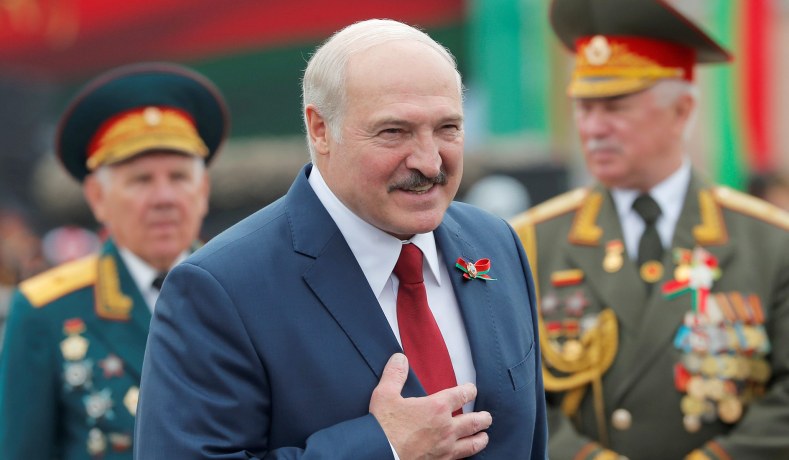
As the international response to the August 9 presidential election in Belarus takes shape, one key international official might step in to lobby against the use of sanctions targeting the regime of President Alexander Lukashenko — a U.N. human-rights official.
The election, which resulted in an apparent victory for Lukashenko, has widely been regarded as fraudulent and illegitimate, with massive vote counting irregularities and the intimidation and disqualification of opposition candidates (there’s more on this in National Review’s tour de force editorial on the situation). It’s no secret that Lukashenko is guilty of egregiously abusing fundamental human rights, but this might not stop Belarusian academic Alena Douhan, who in March became the second U.N. Special Rapporteur on the negative impact of unilateral coercive measures, a special human-rights office. By “unilateral coercive measures” the office’s creators, of course, meant sanctions — particularly, the kind of sanctions employed by Western governments to target chronic human-rights abusers.
That special rapporteur position was created by a 2014 resolution at the U.N. Human Rights Council introduced by Iran on behalf of the non-aligned movement. According to the resolution, that official would be charged with collecting information on sanctions that allegedly contravene human-rights law. The list of countries that voted for it mirrors, unsurprisingly, the countries that are oft targeted by international sanction on human rights grounds — China, Venezuela, Cuba, Russia, and others.
Douhan’s role is receiving fresh scrutiny in the wake of an EU decision this morning to impose sanctions on individuals involved in manipulating the electoral process in Belarus. On Twitter, Hillel Neuer, the director of U.N. Watch, an NGO that holds the international organization accountable to its fundamental human-rights guarantees, said that Douhan could weigh in against the EU move.
“The UNHRC will condemn these EU sanctions against the Belarus regime as ‘unilateral coercive measures,’” he wrote. “They have a Special Rapporteur — @AlenaDouhan (of Belarus . . .) — dedicated to condemning all sanctions on dictatorships as ‘human rights violations.”
National Review requested comment from the U.N.’s Office of the High Commissioner on Human Rights but had not received a response at the time of publication.
During an interview on Tuesday with Truthside TV, an online video channel, Douhan argued against the use of sanctions, describing them as unlawful and against international human-rights legal instruments. She made a similar argument in April, issuing a statement that called on “the international community to take immediate measures to lift, or at least suspend, all sanctions until our common threat is eliminated,” referring to the coronavirus epidemic.
This is a common refrain repeated by the governments of authoritarian countries that are targeted by international sanctions. It’s a neat rhetorical trick that transforms enforcement action intended to stop human-rights abuses into a violation of the targets’ rights, and the sovereignty of the countries implicated in the sanctions. At the U.N. Human Rights Council, authoritarian regimes are provided a platform to make their case — and they’re vested with the institutional legitimacy of the U.N. to do it.
It remains to be seen whether Douhan will eventually speak out against the EU’s decision to impose sanctions on officials linked to the Belarus regime and any additional sanctions against Belarus that are put in place by the U.S government. If she does, this will be another testament to the brilliance of the international authoritarian investment in the U.N.’s human rights mechanisms. It’s a gambit that’s paid off before, and it will continue to pay dividends to the world’s dictators.





